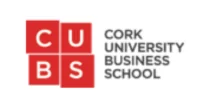Back in 1988, Tom Gilb wrote a witty book entitled “Principles of Software Engineering Management”. Reading through the long list of principles provides much food for thought for the practicing project manager, the PMP® exam student and those who have no interest in software engineering whatsoever.
On this page:
- Project Scope Management
- Planning and Solutions
- Change Control
- Project Risk Management
- Project Quality Management
- Ethics
- Conclusion
Project Scope Management
You cannot get PMP® certification without considerable project management experience and experience teaches you lessons that cannot be found in books – not even the Guide to the Project Management Body of Knowledge (PMBOK® Guide). Gilb’s book is full of such lessons – lessons that will have anyone with PMP® certification nodding in agreement. Let us look at what he says about Project Scope Management:
The invisible target principle: All critical system attributes must be specified clearly. Invisible targets are usually hard to hit (except by chance). In other words, take the Collect Requirements process seriously.
The clear-the-fog-from-the-target principle: All critical attributes can be specified in measurable, testable terms and the worst acceptable level can be identified. This brings back your PMP® training – all requirements must be measurable and testable.
The right stuff principle: The right solutions will always fail to produce the right results if you have not defined exactly what the “right results” are and then make sure you had the right solutions to achieve those results. This is what happens when you fail to take the Define Scope process seriously – know what you are trying to achieve, before working out how to achieve it.
The third wave principle: You may forget some critical factors, but they won’t forget you. How many projects have gotten into trouble because some vital aspect was completely overlooked?
Planning and Solutions
He has also some thoughts on planning and coming up with solutions that should be borne in mind:
The learn-before-your-budget-is-used-up principle: Never attempt to deliver large and complex systems all at once; try to deliver them in many smaller increments, so that you can discover the problems and correct them early. Is anyone thinking about PPARs or Obamacare at this point?
The keep-pinching-yourself-to-see-if-you-are-dreaming principle: Don’t believe blindly in any one method; use your methods and common sense to measure the reality against your needs. Just because a project management approach worked before does not mean it is appropriate for this new project.
The fail-safe minimization principle: If you don’t know what you’re doing, don’t do it on a large scale. A wise project manager will commission a technical feasibility study if this is this case.
The principle of the obvious: “Obvious” things that “everybody knows” cannot be left to take care of themselves. This is why we need project management. Too often it is assumed that stakeholders will be informed, that risks have been taken care of and that the customer will be happy with our product.
He also has some thoughts on change control. Basically, we should not assume that our original Scope Statement is going to stay constant throughout the project.
Change Control
The sacred cow principle of solutions: Solutions are only valid as long as they best serve our current requirements, but no longer. If the scope changes, then the way we are working should be re-evaluated.
The unholy solution principle: Solutions are never holy; they can and should be changed in the light of new requirements, conflicts with other solutions, or negative practical experience with them.
Project Risk Management
Project Risk Management is another area of concern:
The uncertain certainty principle: Uncertainty must certainly be stated in no uncertain terms. A ringing endorsement of the Identify Risks process.
The risk principle: If you don’t actively attack the risks, they will actively attack you. This is probably the project management equivalent of Murphy’s Law: if it can go wrong, it will.
The risk sharing principle: The real project management professional (PMP®) is one who knows the risks, their degree, their causes and the action necessary to counter them and shares this knowledge with his colleagues and clients.
The risk prevention principle: Risk prevention is more cost-effective than risk detection. If Gilb was a PMP®, he would endorse the risk avoidance strategy.
Project Quality Management
Project Quality Management is something we all should be concerned about. Here are some more thoughts:
The principle of unambiguous quality specification: All quality requirements can and should be stated unambiguously, not to mention being measurable and testable.
Shewhart’s measurable quality principle: The difficulty in defining quality is to translate future needs into measurable characteristics so that a product can be designed and turned out to give satisfaction at a price the user will pay. You may have encountered Walter A. Shewhart during your PMP® training. Although W. Edwards Demming created the Plan-Do-Check-Act cycle, he named it the Shewhart Cycle after his mentor.
Ethics
Gilb even has something to say about ethics:
The promise principle: Never make promises you cannot keep no matter what the pressure. How many PMPs® have been brow-beaten into agreeing to an unrealistic deadline or an inadequate budget? If you prepare a schedule or budget from sound premises, make sure you defend it. It is in no one’s interest to go along with a crazy plan.
The written promise principle: If you do make any promises, make them yourself and make them in writing. This is good practice because, if you have not made the promise in writing, then you have not made the promise.
The promise caveat principle: When you make a promise, include your estimate of how much deviation could occur for reasons outside your control, for reasons within your control and for reasons others in the company can control. In other words, provide optimistic, pessimistic and most likely estimates and identify the risks associated with the promise.
Conclusion
Sound common sense: isn’t that what project management is all about? The sad thing is, as Gilb states in his common sense principle: “Common sense is uncommon”.
All of Velopi’s project management training courses are given by experienced project managers, all PMP® certified. They will impart a great deal of practical wisdom as well as providing the best PMP® exam preparation in their classes. We hold our project management certification courses online in our virtual classroom. Find out more by contacting us.

















